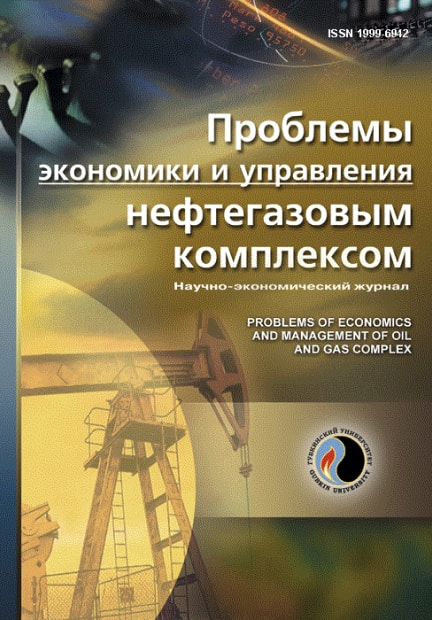Energy transition in Germany on the example of the financial results of the companies "E.ON" and "RWE"
UDC: 911.3:338.4(430)
DOI: 10.33285/1999-6942-2022-2(206)-65-70
Authors:
SHUVALOVA OLGA V. 1
1,
VORONTSOV DANIIL A. 2
2
1 Institute of Geograhgy of the RAS, Moscow, Russia
2 Peoples' Friendship University of Russia (RUDN), Moscow, Russia
Keywords: energy, electric power industry, energy policy, liberalization, Germany, energy transition
Annotation:
The structure of electricity generation, the cost structure in the price of electricity for end consumers in Germany is changing. The authors of this article have shown that major changes are taking place in the territorial-organizational structure of Germany. They are called "energy transition". "E.ON" and "RWE" companies had to restructure their businesses to stay "afloat" in the changing conditions. The purpose of this article is to assess the impact of the state energy policy in Germany on large electricity companies activity − whether they remain financially successful and investment attractive or not. Vertically integrated companies started separating their subsidiaries from their structure. Then the extra ones were sold, and the important ones were kept. Despite the fact that "E.ON" and "RWE” companies used to be vertically integrated ones, they have now completely restructured. "E.ON" company's activities are dominated by the spatial principle of organization – the company operates on the basis of its branches scattered throughout the country and engaged in local electricity sales, while the activities of "RWE" company are dominated by the sectoral principle of organization. "RWE" company business is based on three types of fuel – alternative energy sources, fossil energy sources and nuclear fuel. The study showed that "E.ON" company restructured its activities faster, gaining certain competitive advantages in the market.
Bibliography:
1. Shuvalova O.V., Vorontsov D.A., Rodionova I.A. Innovative energy policy decisions of the countries of the Post-Soviet space at the modern stage (typology of the CIS and Baltic countries by the level of development of alternative energy) // Industry Competitiveness: Digitalization, Management, and Integration. ISCI 2019. Lecture Notes in Networks and Systems. – Springer, 2021. – P. 881–892. – DOI: 10.1007/978-3-030-80485-5_99
2. Jacobsson S., Lauber V. The politics and policy of energy system transformation–explaining the German diffusion of renewable energy technology // Energy Policy. – 2006. – Vol. 34, Issue 3. – P. 256–276. – DOI: 10.1016/j.enpol.2004.08.029
3. Hirth L., Ueckerdt F. Redistribution effects of energy and climate policy: The electricity market // Energy Policy. – Vol. 62. – P. 934–947. – DOI: 10.1016/j.enpol.2013.07.055
4. Hinz F., Schmidt M., Möst D. Regional distribution effects of different electricity network tariff designs with a distributed generation structure: The case of Germany // Energy Policy. – 2018. – Vol. 113. – P. 97–111. – DOI: 10.1016/j.enpol.2017.10.055
5. Kungl G., Geels F.W. Sequence and alignment of external pressures in industry destabilisation: Understanding the downfall of incumbent utilities in the German energy transition (1998–2015) // Environmental Innovation and Societal Transitions. – 2018. – Vol. 26. – P. 78–100. – DOI: 10.1016/j.eist.2017.05.003
6. Kiyar D., Wittneben B. Carbon as investment risk – the influence of fossil fuel divestment on decision making at Germany’s main power providers // Energies. – 2015. – Vol. 8, No 9. – P. 9620–9639. – DOI: 10.3390/en8099620

